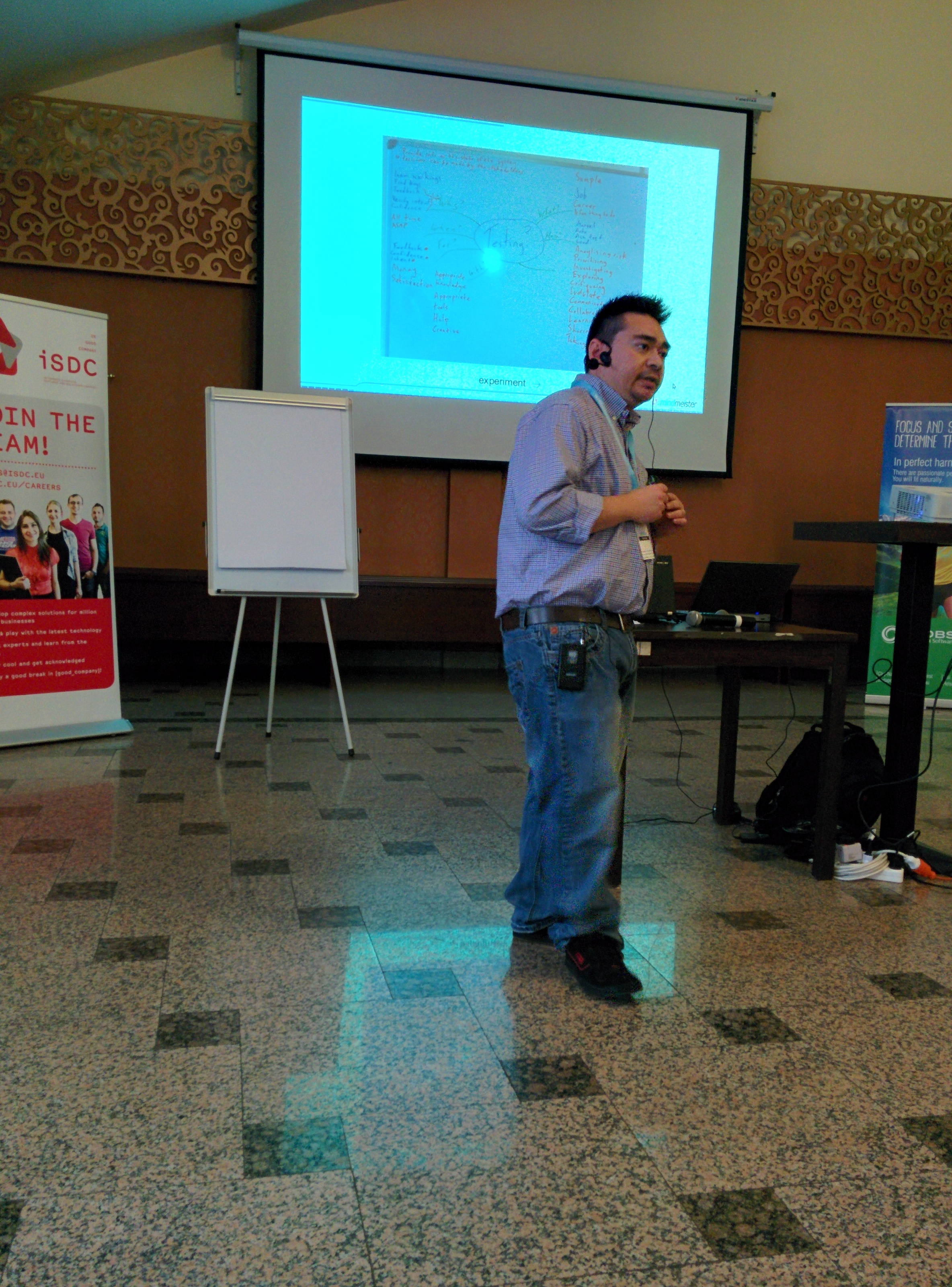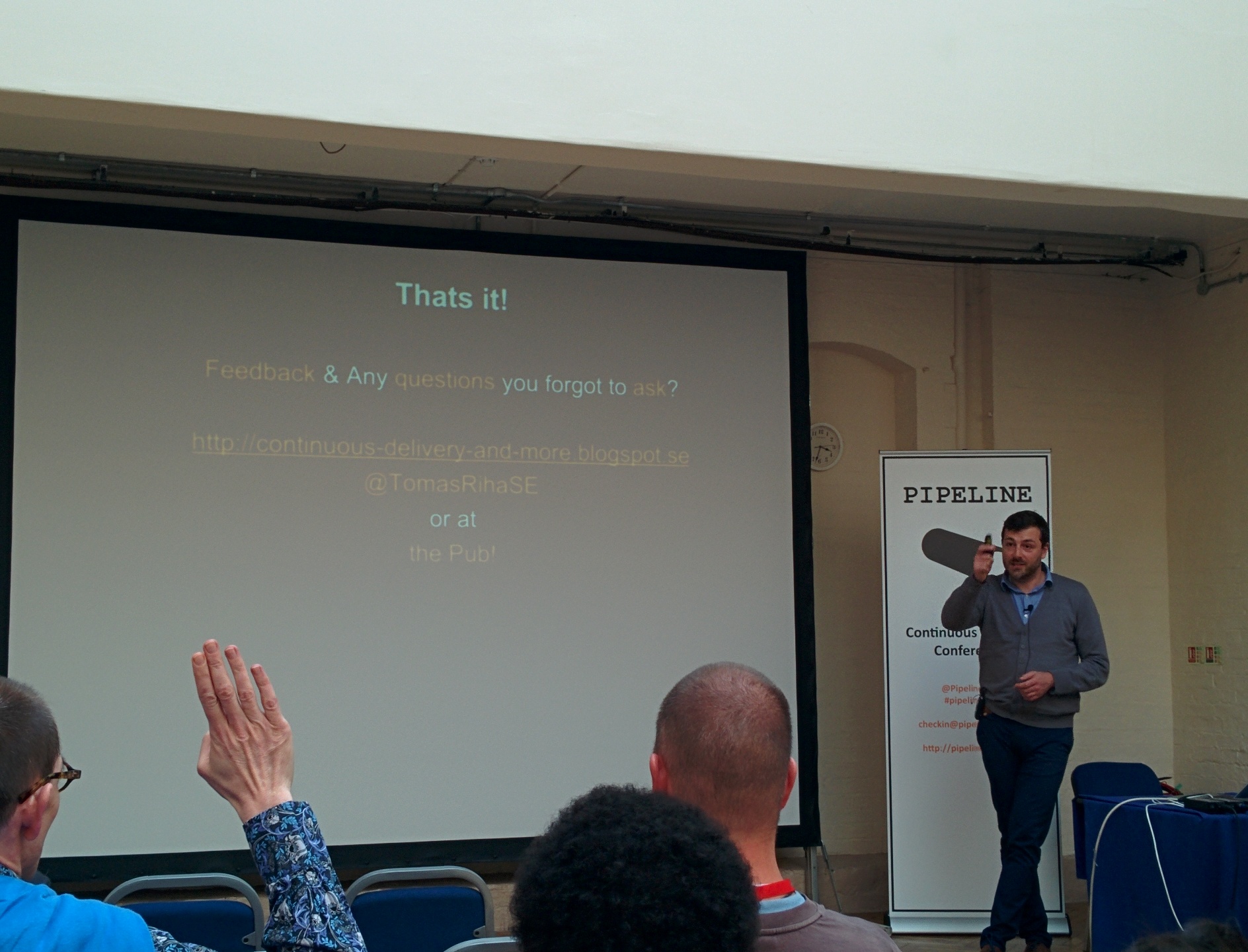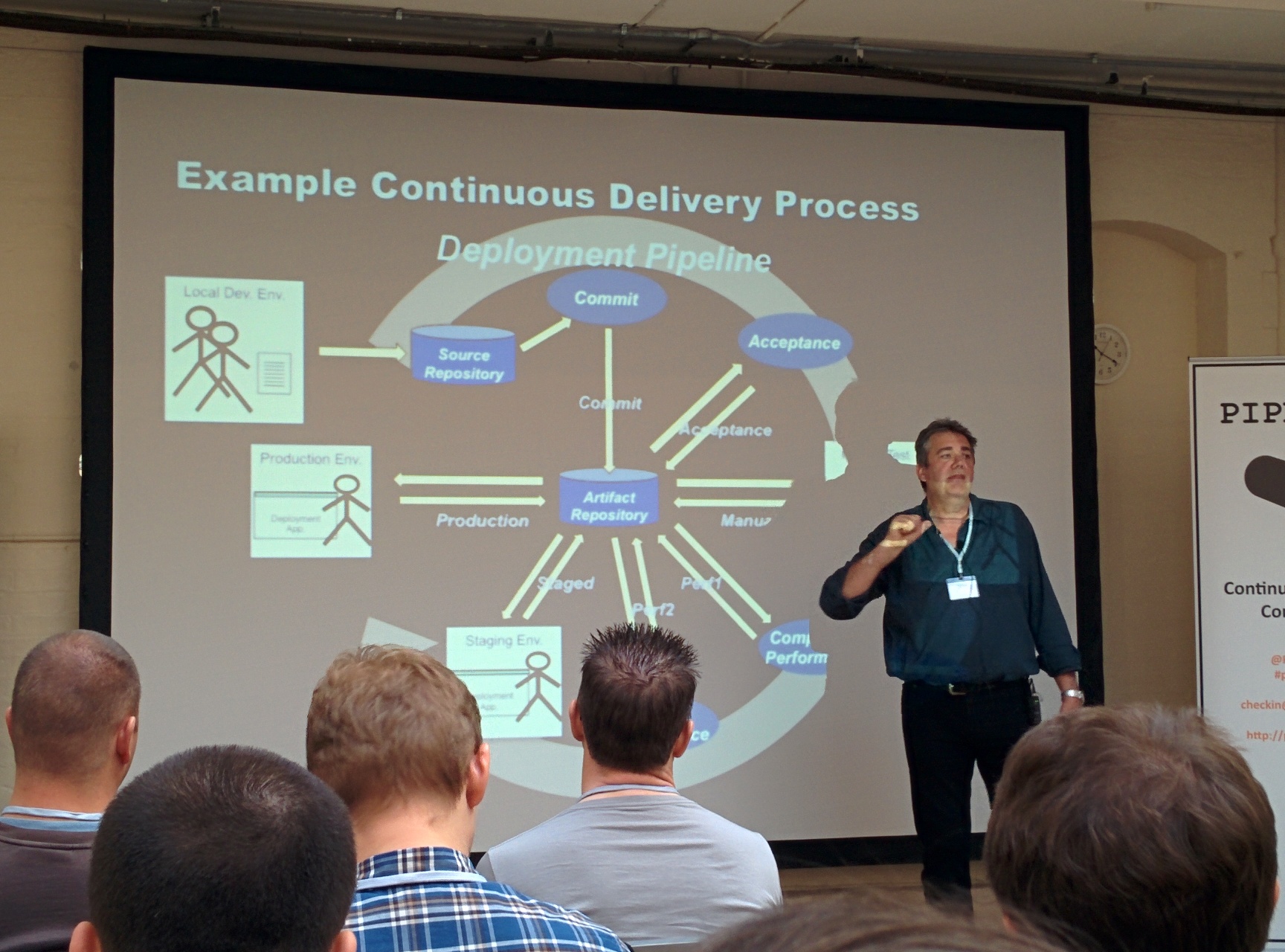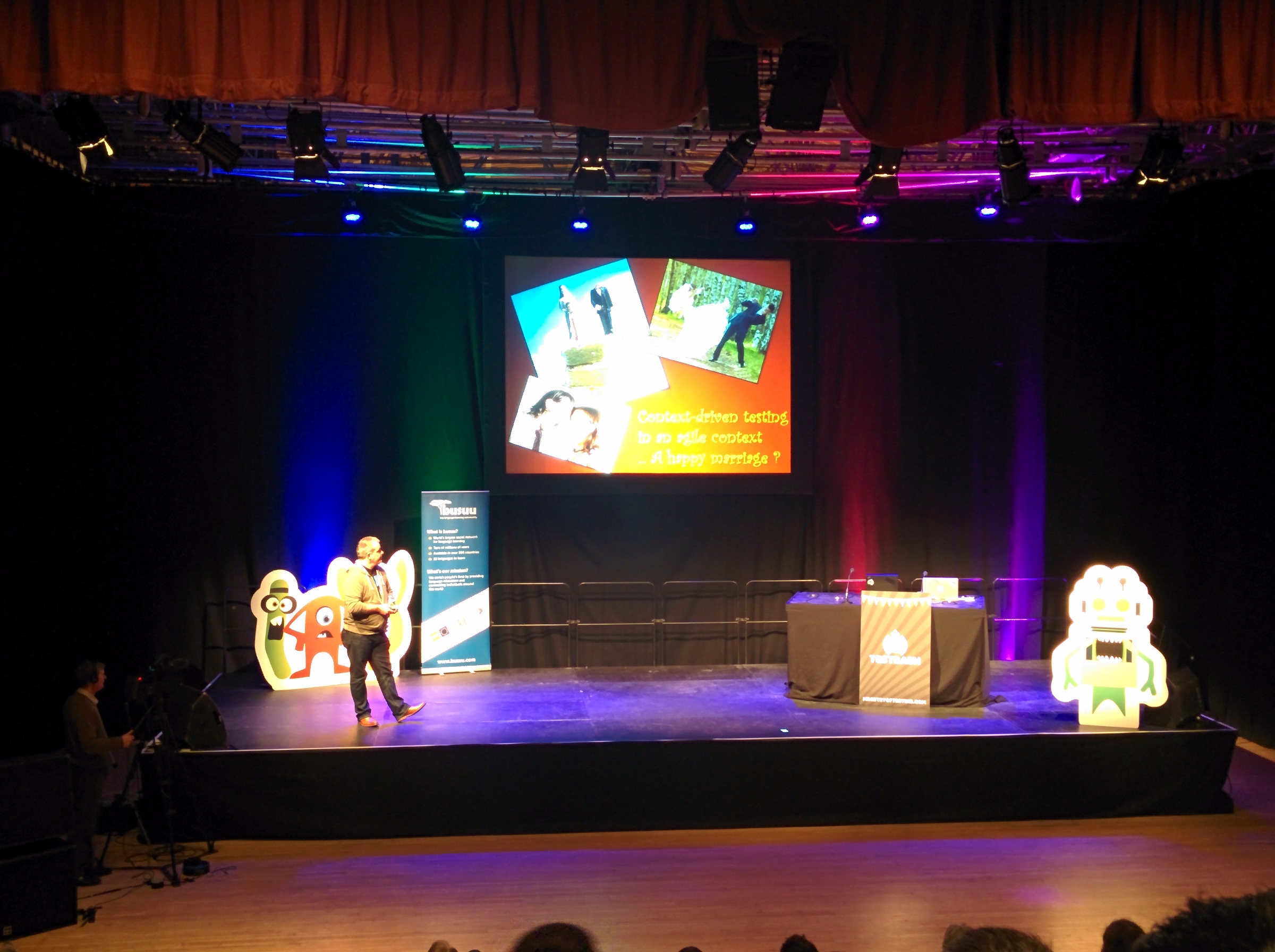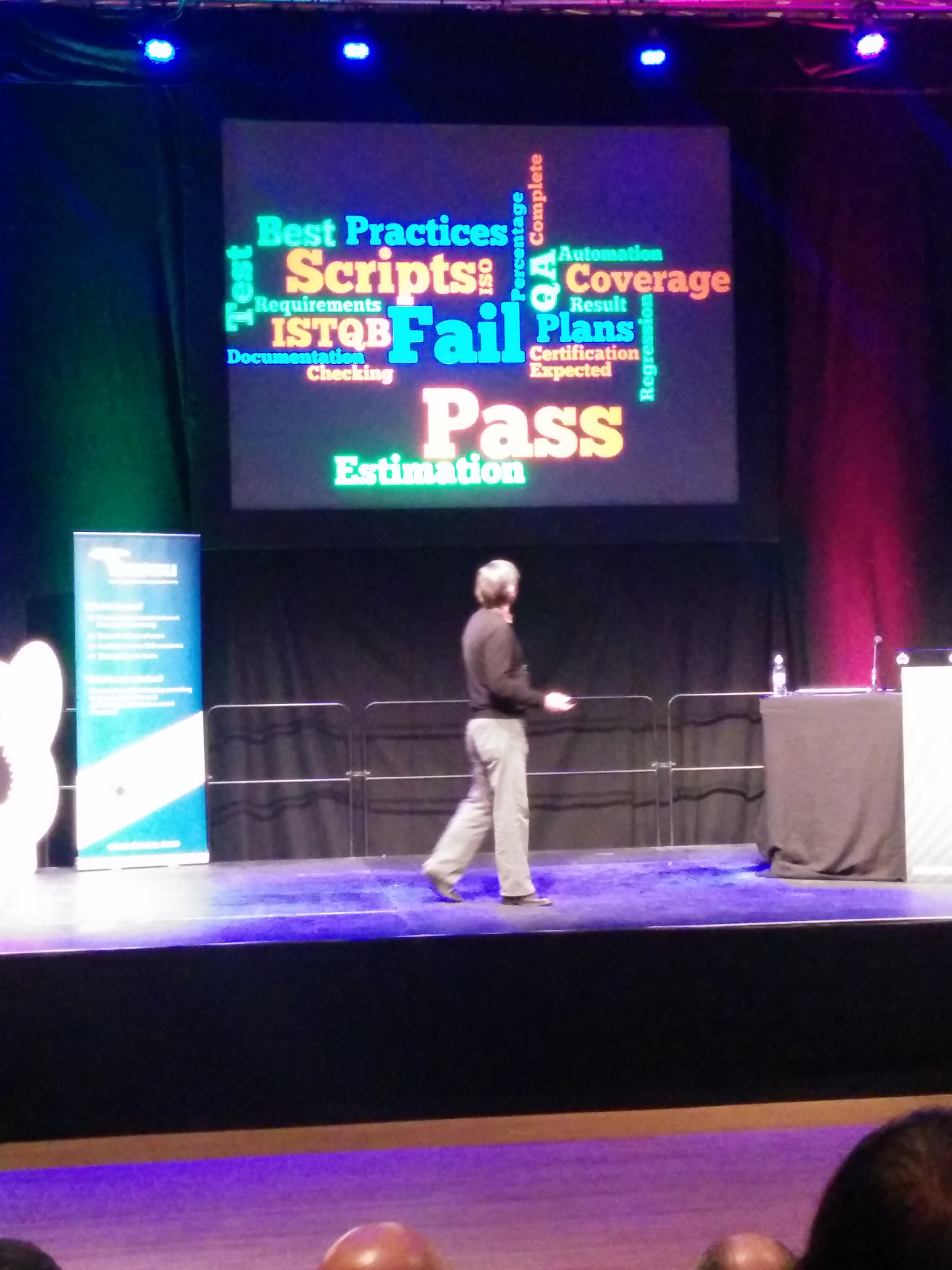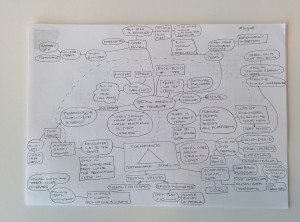I’ve just got back from the Romanian Testing Conference which was held in Cluj-Napoca. It was a great couple of days, talking testing with a lot of new people, and some friends from the UK and further afield.
If you get the chance then I would definitely recommend the conference. There was a good mix of presenters and presentations, and the event was very professionally run. They even had their own RTC2014 branded cars!
I spoke about mobile software testing, and you can find my slides on this site. I also took mindmaps of as many sessions as I could, and I’ve added all of these to a ‘Live From….’ post which you can find here.
Next up, Nordic Testing Days in Tallinn in a couple of weeks. I’m talking about ‘Testing Your Emotions’, which will be a change from the mobile software testing area that I normally present on. I’ll also try and live blog as much as possible from the event.






